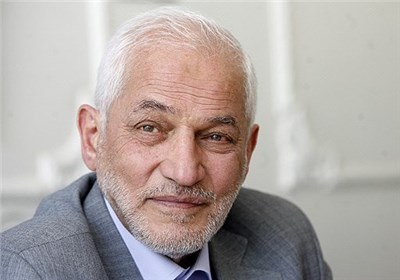- Iranians holding Ashura mourning for Imam Hussein
- Third step: Iran officially informs EU of plan to expand nuclear R&D
- Iran expands nuclear R&D program: Rouhani
- Iran goes ahead in space tech, despite US sanctions: ISA
- Resistance Front undermining Israeli regime power: Top commander
- Iran: 7 crew members of detained UK ship freed
- US addiction to sanction threaten its power: Iran’s Zarif
- Dutch role in 2007 Stuxnet attack on Iran’s nuclear site under scrutiny: Iraian FM Spox.
- Iran: ‘Sustainable Security 2019’ kicks off in Caspian Sea
- Iran’s Zarif leaves Tehran for Moscow
- Shiraz University ranked 1st in liver transplantation: Iranian health official
- Japan’s Abe to meet Iran’s president to discuss easing tension in region
- Downing of US spy drone shattered war threats against Iran: Top IRGC commander
- IAEO head reports development of first ion-therapy hospital in west of Asia
- Iranian Taekwondo team wins 2019 World Cup championship
- US sanctions failed to force Iran to buckle: Report
- Crew fixing Iran oil tanker broken down in Red Sea
- As Iranians hold nerves, US seeks to scare off trade
- Leader expresses concern about Kashmir, urges India to follow fair policy toward Muslim-majority region
- Iran saffron exports down due to smuggling, government restrictions: Exporter
- Iran FM warns US against ‘serious miscalculation’ in Persian Gulf
- Iran’s resistance policy led to release of oil tanker: MP
- Iran in reverse brain drain as top students come home in rising numbers
- Iran official calls for compensation for tanker seizure
- Iran hails N Korea for standing against ‘unilateral’ US demands
- Shia Muslims celebrate Eid Al-Ghadir
- North Korea praises Iran’s anti-US struggle
- Zarif says to meet French president Friday
- Iranian court hearing case of UK oil tanker
- Over half of Japanese voters oppose joining US-led anti-Iran coalition in Persian Gulf: Poll
- IME trade ups by 21 percent in July
- Finland backs INSTEX in defiance of US
- US anti-Iran policy in high seas harms Europeans: LA Times
- Iran, China confer on Syria
- Iran, Finland share views on Persian Gulf dialogue forum: Zarif
- Iran warns US against seizure of oil tanker
- Iraq eager to benefit from Iranian Police’s experience
- Iran planning 3rd step to reduce nuclear commitments: Spokesman
- Leader grants clemency to over 1,000 Iranian inmates
- Registration for Arbaeen Pilgrimage to begin in Iran on Friday
- Iran, Iraq agree to reopen Khosravi border crossing
- Iran deplores suicide attack at Kabul wedding hall
- Iran to hold int'l hand-woven carpets expo
- Zarif meets with Iran-Kuwait Friendship Group members
- Adrian Darya oil tanker not under any sanctions, says Iran envoy
- ‘Iran to stay in nuclear deal as long as its interests are met’
- India envoy happy with positive trend of trade with Iran
- Iran’s annual export of white meat tops 2.5m tons: Minister
- Iranian scientist discovers new state of matter
- Iran, Japan diplomats discuss bilateral ties
- Iran, Ansarullah, European representatives Yemen developments
- ‘Iran to become self-sufficient in producing aircraft engines'
- US issues seizure warrant for Iranian supertanker 'Grace 1'
- Neanderthal tooth unearthed near Iran’s Zagros mountain
- Iran’s Zarif due in Kuwait on Saturday
- US faces humiliating defeat after Gibraltar releases Iranian tanker: Envoy
- Spokesman rejects claim on Iran’s commitment in exchange for tanker release
- Zarif reacts to release of Iranian tanker in Gibraltar
- Israel, UAE engaged in secret talks on Iran arranged by US: Report
- US threatens visa ban as Iranian-operated tanker sets to sail from Gibraltar
- Enemies must factor Iran's global power in their calculations: IRGC's chief commander
- Trump’s administration conflicting messages to Iran baffle go-betweens: Report
- Gibraltar releases Iran-operated tanker despite US pressure
